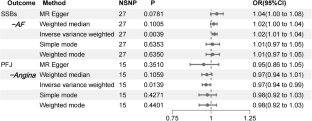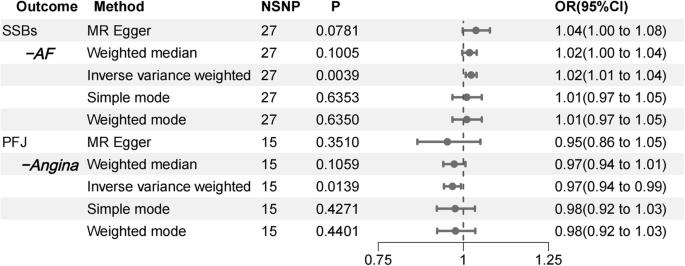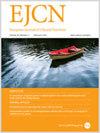Association between sugar-sweetened beverages and pure fruit juice with risk of six cardiovascular diseases: a Mendelian randomization study
IF 3.3
3区 医学
Q2 NUTRITION & DIETETICS
引用次数: 0
Abstract
In observational and prospective cohort studies, intake of sugar-sweetened beverages (SSBs) and pure fruit juice (PFJ) has been associated with cardiovascular disease (CVD). Still, the causality of the connection has not yet been determined. Our objective was to uncover the relationship between SSBs/PFJ and CVD. Genetically predicted causal associations between SSBs/PFJ (obtained in a published genome-wide association study) and six common CVDs (atrial fibrillation (AF), angina, heart failure (HF), acute myocardial infarction, hypertension, and coronary atherosclerosis) were assessed using MR analytic modeling. The primary analysis method utilized was the inverse variance weighted (IVW) method, complemented by additional methods such as the weighted median method, MR Egger regression, Cochran’s Q test, MR pleiotropy residual, funnel plot, Bonferroni correction, and others for MR analysis. To ensure the robustness of the findings, F-values were calculated as a complementary test to set looser thresholds for exposing genetic instrumental variables (P < 1e−5). The results of MR analysis suggested genetically causal associations between SSBs and AF (odds ratio (OR): 1.023; 95% confidence interval (CI) 1.007–1.038; P = 0.0039) as well as between PFJ and angina (OR: 0.968; 95% CI, 0.943–0.993; P = 0.0138) there was genetic causality. However, MR analysis showed no causal association between SSBs/PFJ and other CVD risks. This study suggests that there may be a potential causal relationship between SSBs intake and AF and a causal negative association between PFJ intake and angina.


含糖饮料和纯果汁与六种心血管疾病风险的关系:孟德尔随机研究
背景在观察性和前瞻性队列研究中,含糖饮料(SSB)和纯果汁(PFJ)的摄入量与心血管疾病(CVD)有关。然而,这种联系的因果关系尚未确定。我们的目标是揭示 SSBs/PFJ 与心血管疾病之间的关系。方法使用 MR 分析模型评估 SSBs/PFJ(在已发表的全基因组关联研究中获得)与六种常见心血管疾病(心房颤动 (AF)、心绞痛、心力衰竭 (HF)、急性心肌梗塞、高血压和冠状动脉粥样硬化)之间的遗传预测因果关系。采用的主要分析方法是反方差加权(IVW)法,并辅以加权中位数法、MR Egger 回归、Cochran's Q 检验、MR 多向残差、漏斗图、Bonferroni 校正等其他方法进行 MR 分析。为确保研究结果的稳健性,计算了 F 值作为补充检验,为暴露遗传工具变量设定了较宽的阈值(P < 1e-5)。结果磁共振分析结果表明,SSB 与房颤(几率比(OR):1.023;95% 置信区间(CI)1.007-1.038;P = 0.0039)以及 PFJ 与心绞痛(OR:0.968;95% CI,0.943-0.993;P = 0.0138)之间存在遗传因果关系。结论 本研究表明,SSBs 摄入量与房颤之间可能存在因果关系,PFJ 摄入量与心绞痛之间存在因果负相关。
本文章由计算机程序翻译,如有差异,请以英文原文为准。
求助全文
约1分钟内获得全文
求助全文
来源期刊
CiteScore
10.60
自引率
2.10%
发文量
189
审稿时长
3-6 weeks
期刊介绍:
The European Journal of Clinical Nutrition (EJCN) is an international, peer-reviewed journal covering all aspects of human and clinical nutrition. The journal welcomes original research, reviews, case reports and brief communications based on clinical, metabolic and epidemiological studies that describe methodologies, mechanisms, associations and benefits of nutritional interventions for clinical disease and health promotion.
Topics of interest include but are not limited to:
Nutrition and Health (including climate and ecological aspects)
Metabolism & Metabolomics
Genomics and personalized strategies in nutrition
Nutrition during the early life cycle
Health issues and nutrition in the elderly
Phenotyping in clinical nutrition
Nutrition in acute and chronic diseases
The double burden of ''malnutrition'': Under-nutrition and Obesity
Prevention of Non Communicable Diseases (NCD)

 求助内容:
求助内容: 应助结果提醒方式:
应助结果提醒方式:


